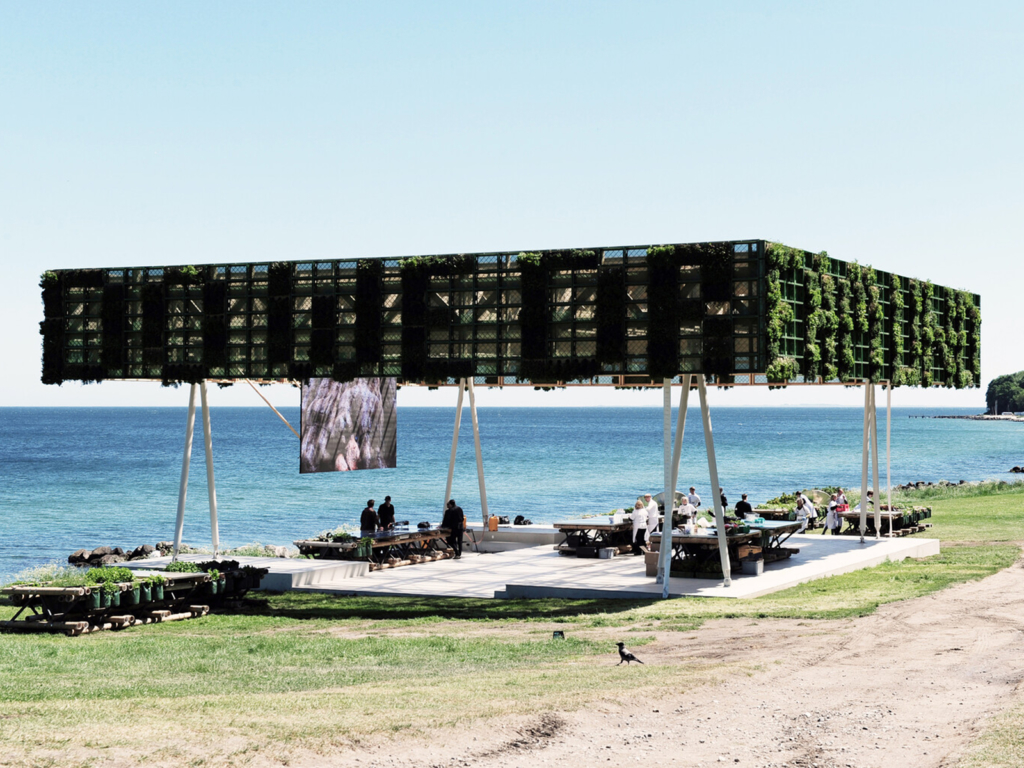The new cross-faculty Master’s focus on SPATIAL STRATEGIES, which combines the MA Integrated Design Research with the MA Architecture, is currently being tested. The new focus is part of the »Urban Intensities & Ressources« thematic cluster of the MA Integrated Design Research at KISD. BA Design graduates who are interested in this focus should apply for the MA Integrated Design Research. Interested architecture graduates should contact: marco.hemmerling@th-koeln.de
»[…] politics has the will to solve the problems which plague people, and its solutions must somehow be as simple as possible and consist at best in a single concrete solution. I gave one example: the problem of a graying society crops up, and the ›solution‹ is the retirement home […] while actually, the way to process the problem […] would be to educate everyone else, the rest of society […] and so tackle the problem this way and elsewhere, too. There is another term for this alternative to the word ›solve‹ […]: it is ›strategy.‹ […] So the alternative to direct problem-solving would be to introduce strategies, i.e. to adopt packages of measures which in various ways bring about the desired objective.«
Lucius Burckhardt, Who plans the Planning. Architecture, Politics, and Mankind (1974), Basel 2020, pp. 30–31.
The cooperative Master’s study focus SPATIAL STRATEGIES refers to the spatial turn – a turn in cultural studies, discussed since the 1980s, which perceives space as a cultural quantity and seeks to define it as the basis of cultural practices and orders.
SPATIAL STRATEGIES is concerned not only with material objects, but also with cultural and social processes and practices of use, appropriation, and transformation of the designed environment. Special attention is paid to the exploration and development of the city as a living space – with its artifacts, its social milieus, diverse cultures, sensory impressions and histories. We will focus on spaces of different sizes and their conditions on a 1:1 scale. Through active design we get to know them and invent new ways to open them up for appropriation processes. We initiate processes that help the actors involved to deal with them and to recognize, understand and use their possibilities.
SPATIAL STRATEGIES examines the spatial rearrangements brought about by upheavals in global political geography, the proliferation of digital communication technologies, and the global circulation of people and goods. The basic thesis is that through these processes of social transformation, people’s relationships to their spaces are being renegotiated, changed, and rearranged. By analyzing such processes of transformation, the program aims to contribute to a better understanding and explanation of current social conflicts and insecurities, and – through architecture and design – to point to alternative designs for public spaces. In the process, bodies, things, spaces and technologies connect in previously unknown ways and open up new potentials for the urban. Exploring these possibilities and rethinking and redesigning the city as an urban commons is an essential component of the program.
SPATIAL STRATEGIES describes a field in which new tasks arise for designers, architects, and cultural scientists, and in which artists, urban and landscape planners, and other professions are also active in design. The framework is formed by a plurality of theoretical and methodological approaches to spatial research from design and architecture, cultural and media theory, sociology, urban studies and geography. The program systematically combines artistic design with scientific methods.
The range of possible perspectives encompasses:
• Subjective perceptions of space and collective imaginaries of the urban
• Data-driven modes of interaction and new interfaces between bodies, things and spaces
• Security, control and power
• Structures of socio-spatial inequality, exclusion and discipline and their overcoming
• Alternative political spaces and modes of participation in the city and society
• Political architecture and democratic spaces
• Analog/digital techniques for participatory appropriation and design of urban spaces and processes
• New forms and technologies of mobility
• Interactions between migration and mobility
• Urban practices of sharing and sustainable consumption
• Social utopias for life in the post-fossil city
• Potentials and real experiments of informal urban production
• Participatory approaches to the appropriation of space
• The emergence of new publics and public spaces
• Social cohesion and diversity
The MA study focus is part of the thematic cluster »Urban Intensities & Ressources« of the MA program Integrated Design Research. Projects and seminars can be carried out in cooperation with students and teachers from the Department of Architecture. Please note the special cooperation offers in the semester program. If you are interested, please contact Prof. Dr. Carolin Höfler (carolin.hoefler@th-koeln.de) or Daniela Meinhardt (daniela.meinhardt@th-koeln.de), head of study program development.
In transdisciplinary projects, students have the opportunity to develop and implement their research and designs together with non-university research institutions as well as cultural, civic and urban partners. In addition, there is the possibility of transcultural work with international partner universities.
SPATIAL STRATEGIES is embedded in an attractive scientific environment, which includes the TH research center »Real-Time City« and the doctoral program NRW with its focus on »Bau und Kultur« (Building and Culture). Master’s graduates in design and architecture have the opportunity to complete a dissertation project in the »Space and Culture« focus area of the NRW Doctoral Academy.
Core Staff
Prof. Marco Hemmerling (Faculty of Architecture, Computational Design in Architecture)
Prof. Dr. phil. Carolin Höfler (Faculty of Cultural Sciences, Design Theory and Research)
Prof. Dr.-Ing. Michel Müller (Faculty of Architecture, Artistic-Experimental Design)
Prof. Dr.-Ing. Nadine Zinser-Junghanns (Faculty of Architecture, Conceptional Architecture and Design)
Image: Rirkrit Tiravanija, Nikolaus Hirsch, Michel Müller, DO WE DREAM UNDER THE SAME SKY, ARoS Triennial, Aarhus, Denmark, 2017.
